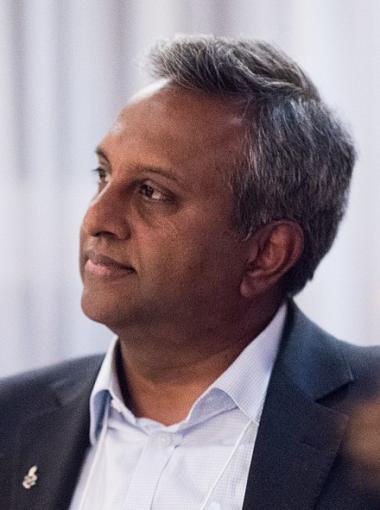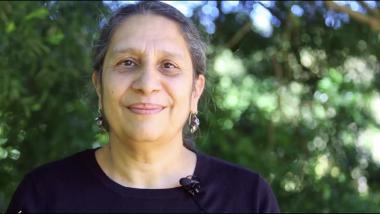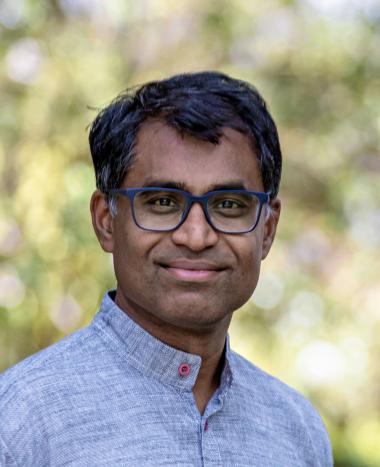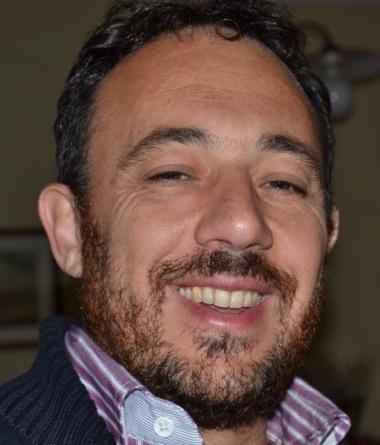
Innovation Dialogues: POWER
Power is the topic for the first of ActionAid´s Innovation Dialogues.
8-9 December 2024, TCDC, Arusha, Tanzania
ActionAid will soon host the first of its Innovation Dialogues series of workshops, designed to uncover knowledge and explore themes of fundamental importance to our current and future work. The theme of this workshop is power:
• How does power concentrate in today’s social, religious, business, and political formations?
• What are the emergent possibilities for power redistribution?
• How are counter-power, resistance, and counter narratives being built and repressed?
Agenda
8th December
Morning sessions: 10.00 – 13.15
Chair for the session: tbc
• Check in (10.00- 11.00). Intro (Arthur/Hellen Grace welcomes and Marco introduces the Dialogues for 20’), followed by a round of personal expectations (3-5’ each). Expectations are noted on a flipchart and will be addressed in the end.
• 11.00-11.30: Andreia interviews Danny (online) based on 4 initial questions and the book
- Leading Questions to Help Frame the Dialogue
• How is power accumulated, redistributed or dispersed within and across State structures and other public institutions? How is dissent disregarded or repressed by institutions?
• How is power accumulated, redistributed or dispersed in corporate type formations? How is dissent marginalised or repressed by such formations?
• How will different forms of oppressive power be resisted in the 2030s?
• How is power, consistently with the assets above, accumulated, redistributed or dispersed in social formations / movements?
• Comfort break/Coffee/informal chats: 11.30-11.45.
• 11.45-12.30: Q&A + debate on intro session (ignited by tbc ).
• 12.30-13.15: Round of comments and dimensions of power not addressed in ToR or that needs further exploring (with suggestions how/when)
Rapporteur for the next morning: Marco
Lunch break: 13.15 – 14.30
Afternoon sessions: 14.30-17.45
Chair of session: Salil
Deep-dive session: 14.30- 16.45 with a 15’break at 16.00 to 16.15
• We are pre assigning the “specific” questions in the ToRs to participants, so that they can come in with organised thoughts on those. Give 20’ each to ignite the debate.
• How is power defined in the latest / most progressive social science circles? What framing of power is relevant to the Dialogues. Power “to”, power “with”, power “over” or other framings such as ‘visible, invisible and hidden power’? - DAVID ARCHER, ARTHUR LAROK
• Are there any cultural differences to be acknowledged in how power is accumulated, exercised and distributed in different geographical contexts or organised settings? - ANDREJA, TASNEEM
• Is geography still divided into spaces where the monopoly of the use of force is held by States or state-like entities? Or is it that the power of capital, data, media is dominant? - HANI AL MASRI, PRATO, SANDEEP
• How is “people’s power” defined when often people are mobilizing, voting and generally rallying behind formations that work against their interest? Who are the “people”? How does organised people power balance the rule of the majority and the protection of minorities? - GINO, AL MASRI, STEFANO PRATO
• Can organised citizenship counter state or corporate power at all? If yes, in what areas, using what sources of power and with what legitimacy beyond critical mass? - TASNEEM, ANDREIA
• What should organised civil society start and stop doing to prevent the wasting of time and resources? - SALIL SHETTY, STEFANO PRATO
Overall plenary: 16.45-17.45
• What has emerged from previous discussions regarding each question in the ToRs and any additional points raised during the morning session.
Rapporteur of the session for the next morning: Gino does a summary (or swap with Salil, Salil does a summary)
20.00 Informal dinner and meeting of steering committee.
9th December
Morning sessions: 09.00 – 13.15
Chair of session: Luca
• 9.00-09.30: Rapporteurs from first half days and quick debate.
• 09.30-10.30: Suggestions of areas to further explore and how, what institutions, with what resources and partners (on power). Round table.
• 10.30-10.45: comfort break
• 10.45-11.45: Each participant writes one pager of their own learning and future engagement
• 11.45-12.00: Reflections on the Power dialogue vs the wider ToR of the Innovation Dialogues
• 12.00-13.00: Plenary to share and decide on follow up (1h)
13.00 Informal lunch and goodbye
Background
The topic of power is broad enough to constitute a foundation for subsequent dialogues as the “shelf life” of any outcome is possibly sufficiently long to remain of interest over the next few years; it is also understood that this informal dialogue will necessarily be rolled out as a pilot. One objective besides content sharing and production will therefore be to assess the sustainability and organisational challenges that setting up a series of innovation dialogues can imply.
ActionAid will need also to reflect on whether ActionAid was/is fit for purpose and future in relation to the issues discussed, reviewing its role and that of international CSOs more broadly, in line with our commitments to feminist leadership, locally led development and disintermediation.
Preparatory Reading
Power to the People: Use your voice, change the world by Danny Sriskandarajah
Power to the People: Use Your Voice, Change the World by Danny Sriskandarajah | Goodreads
The book is his radical manifesto for change designed to inspire citizen action around the world. It presents a blueprint for how we, as individuals, can make a difference through greater community engagement, and how we can deliver a society that works for the many and not the few. He speaks to voter apathy and a growing sense that elections no longer matter, with politicians and institutions too focused on short-term issues to grapple with complex global problems such as climate change, rising inequality, and digital disruption. Yet the book is also filled with inspiring real-life examples of citizen power in action, ranging from a volunteer-run repair café in Danny's local suburb to Avaaz's successful campaigns to tackle endemic corruption in Brazil.
From public ownership of social media spaces to democratizing share ownership, and from re-energizing co-operatives to creating a people's chamber at the United Nations, this campaigning book has a clear mission to make us reclaim our power as citizens of the world.
The Invisible Doctrine: The Secret History of Neoliberalism by George Monbiot, Peter Hutchinson
The Invisible Doctrine: The Secret History of Neoliberalism by George Monbiot | Goodreads
How can you fight something if you don’t know it exists?
We live under an ideology that preys on every aspect of our our education and our jobs; our healthcare and our leisure; our relationships and our mental wellbeing; the planet we inhabit – the very air we breathe. So pervasive has it become that, for most people, it has no name. It seems unavoidable, like a natural law.
But trace it back to its roots, and we discover that it is neither inevitable nor immutable. It was conceived, propagated, and then concealed by the powerful few. Our task is to bring it into the light—and to build a new system that is worth fighting for. Neoliberalism. Do you know what it is?
Crack-Up Capitalism: Market Radicals and the Dream of a World Without Democracy by Quinn Slobodian
In a revelatory dispatch from the frontier of capitalist extremism, an acclaimed historian of ideas shows how free marketeers are realizing their ultimate goal: an end to nation-states and the constraints of democracy.
Look at a map of the world and you’ll see a colorful checkerboard of nation-states. But this is not where power actually resides. Over the last decade, globalization has shattered the map into different legal spaces: free ports, tax havens, special economic zones. With the new spaces, ultracapitalists have started to believe that it is possible to escape the bonds of democratic government and oversight altogether.
Crack-Up Capitalism follows the most notorious radical libertarians - from Milton Friedman to Peter Thiel - around the globe as they search for the perfect space for capitalism. Historian Quinn Slobodian leads us from Hong Kong in the 1970s to South Africa in the late days of apartheid, from the neo-Confederate South to the former frontier of the American West, from the medieval City of London to the gold vaults of right-wing billionaires, and finally into the world’s oceans and war zones, charting the relentless quest for a blank slate where market competition is unfettered by democracy.
A masterful work of economic and intellectual history, Crack-Up Capitalism offers both a new way of looking at the world and a new vision of coming threats. Full of rich details and provocative analysis, Crack-Up Capitalism offers an alarming view of a possible future.

Salil Shetty
Indian human rights activist who was the Secretary General of the human rights organization Amnesty International from 2010-2018. Previously, he was the director of the United Nations Millennium Campaign. Before joining the UN, he served as the Chief Executive of ActionAid. Most recently, Shetty had a short stint as the Vice President of Global Programs at the Open Society Foundations.

Tasneem Essop
Tasneem Essop is currently the Executive Director of Climate Action Network International (CAN-I).
She served two terms, a total of 10 years, as a Commissioner in the National Planning Commission in South Africa, appointed by the President, where she led the work on Climate Change and the Just Transition.
She previously headed the climate team in WWF International and served as the Head of Delegation for the organisation at the UNFCCC right through to the COP in Paris.
She became a Member of the Provincial Parliament in the Western Cape in 1994 after the first democratic elections in South Africa and went on to hold the positions of Provincial Minister of Transport, Public Works and Property Management from 2001 to 2004 and Provincial Minister for the Environment, Planning and Economic Development from 2004 to 2008 when she resigned from official politics.
Tasneem was an anti-apartheid activist from an early age in different capacities until the democratic elections in 1994. During this time she was a student and youth activist, a teacher and a trade unionist.

Danny Sriskandrajah
Dr Dhananjayan Sriskandarajah has been Chief Executive of the New Economics Foundation since January 2024. Danny's previous roles include CEO of Oxfam GB, Secretary General of CIVICUS, Director of the Royal Commonwealth Society, Interim Director of the Commonwealth Foundation and various posts at the Institute for Public Policy Research.
He is a Trustee of the Guy’s & St Thomas’ Foundation and has previously been a Trustee of the Baring Foundation, Comic Relief, Disasters Emergency Committee and Praxis Community Projects.
He has been a member of two United Nations High Level Panels, on digital co-operation and humanitarian finance. He is the author of "Power to the People: Use your voice, Change the world" (Headline Press, 2024).

Stefano Prato
Stefano Prato is the Managing Director of the Society for International Development (SID) and the Editor of SID’s Quarterly Journal “Development”. He is the coordinator of the Civil Society Financing for Development Group and member of the Editing Team of the annual Spotlight Report on Sustainable Development. He currently serves as Co-Chair of the Steering Group of HLPF Major Groups and other Stakeholders Coordination Mechanism. He served as one of the Advisors to the UN Secretary General’s High-Level Panel of Eminent Personalities for the Post-2015 Development Agenda. He is also the co-coordinator of the global Civil Society Nutrition Group and member of the Editorial Board of the Right to Food Watch. He is a very active participant of the Civil Society Mechanism (CSM) of the Committee on World Food Security and co-facilitates the CSM Working Groups on Nutrition, Sustainable Agriculture & Livestock and SDGs. His most recent areas of interest address the democratization of global economic governance, the architecture of nutrition governance, the corporate capture of food, agriculture and nutrition, and the political economies of inequalities, particularly in the African context. He graduated in Economics at the Faculty of Economics and Business Administration, pursued a second University degree in veterinary medicine and completed his PhD in Animal Health, Food Safety and Livestock Management, while also enjoying a limited practice of veterinary medicine.